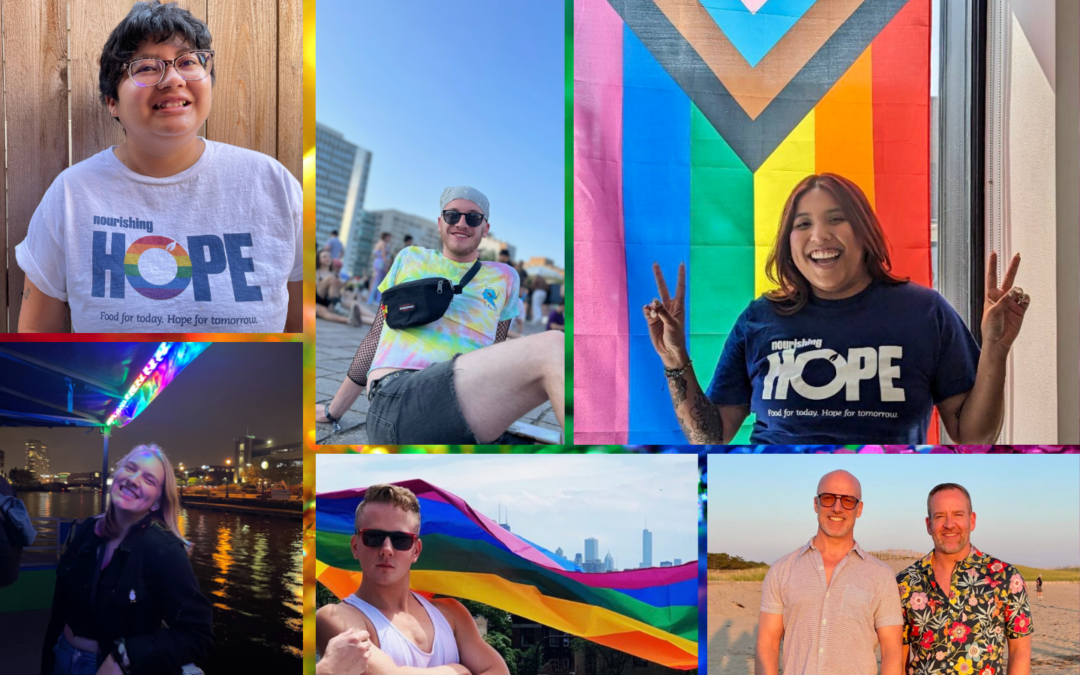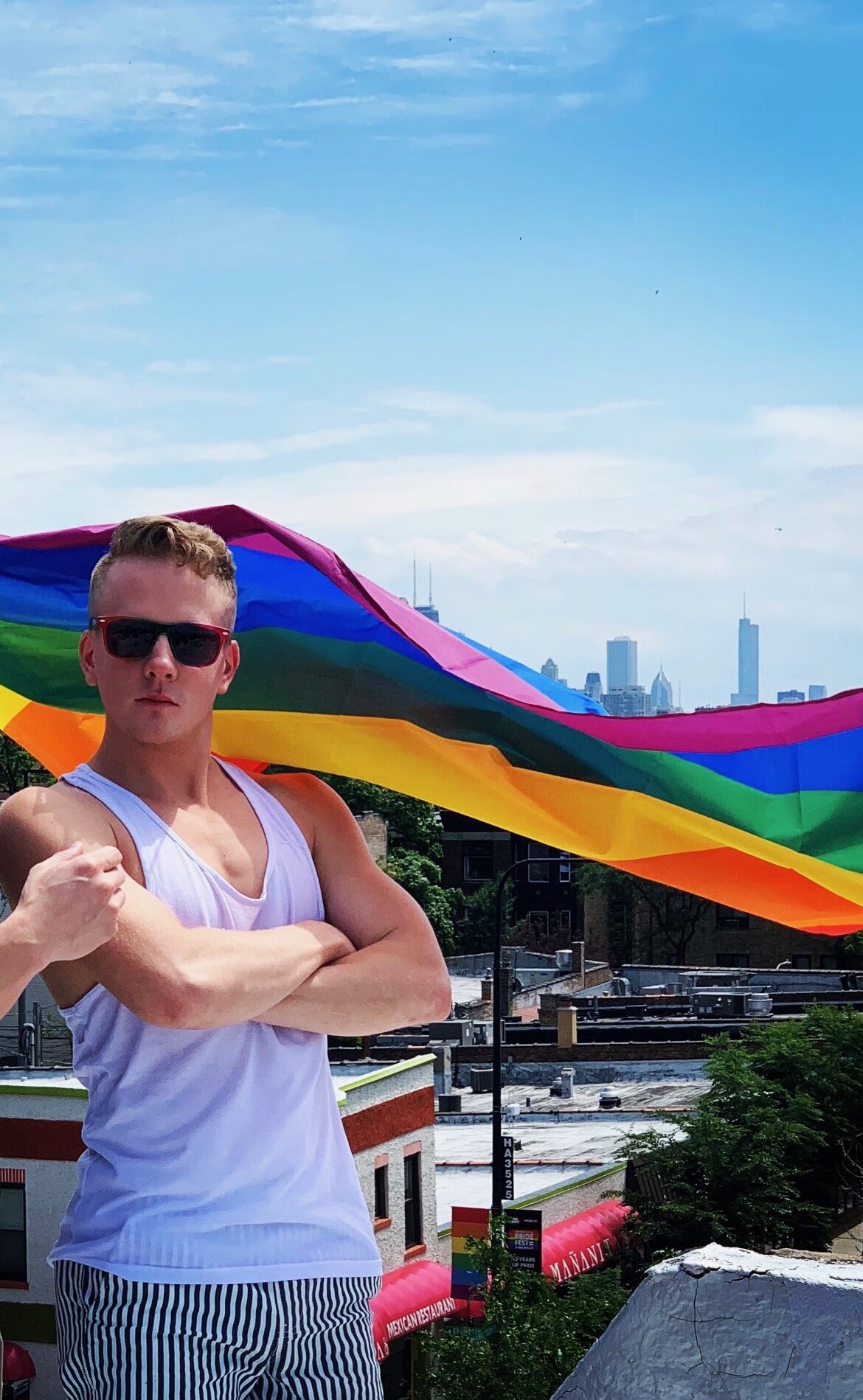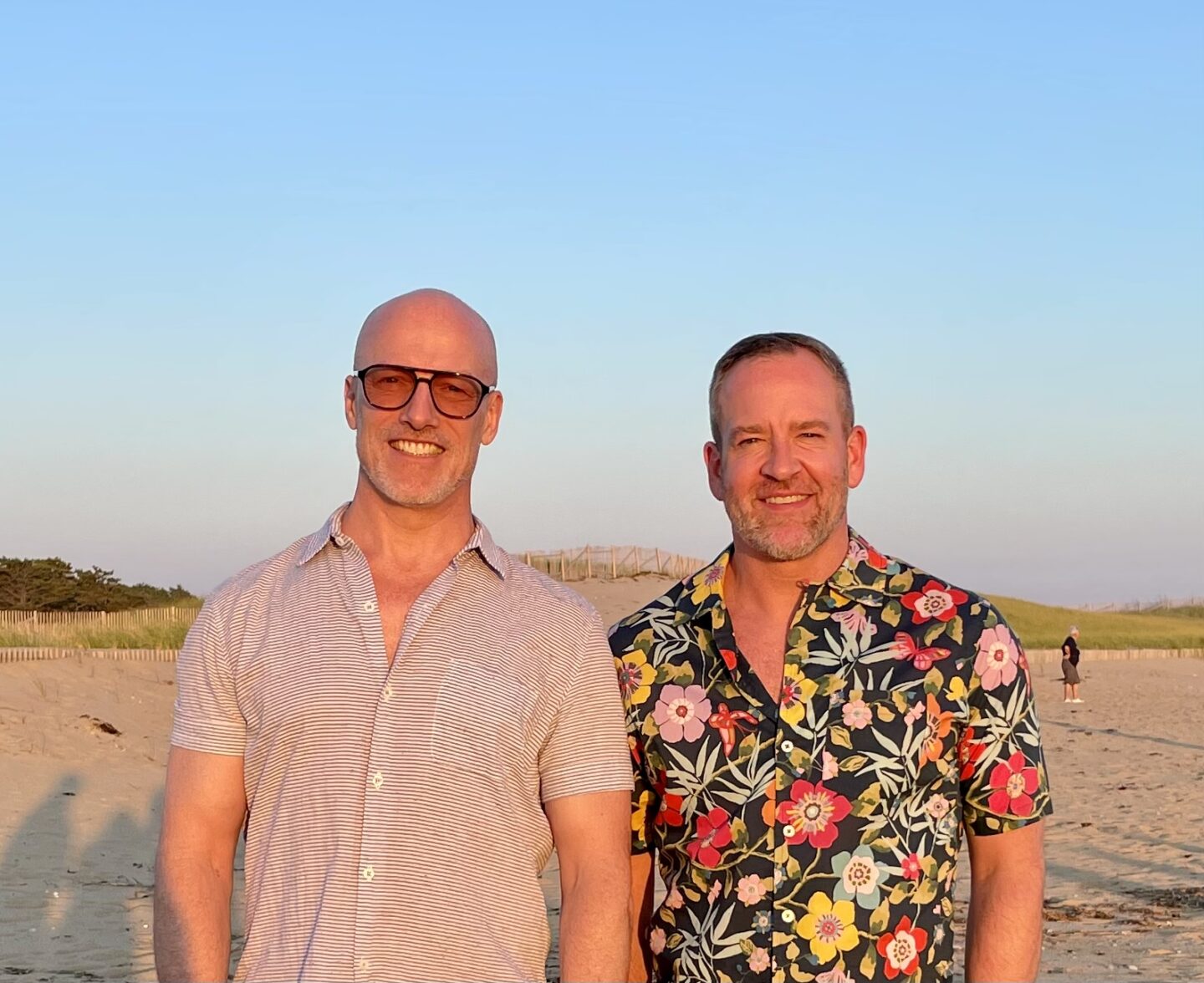At Nourishing Hope, we’ve long been proud to serve the LGBTQ+ community in Chicago.
Nationally, people who identify as LGBTQ+ are disproportionately affected by food insecurity, and also by mental health struggles, according to national data. We know that transgender people, in particular, are also far more likely to experience homelessness than cisgender people.
Simply put, if you’re not accepted for who you are — by your family or community at large — you’re going to face additional barriers to a healthy and happy life. And that’s completely unjust. All people deserve to feel safe and loved.
Pride Month is a time of joy, celebration and reflection. It’s also a time of action.
This Pride Month comes with particular urgency. In the past few years, state lawmakers across the country have pushed a record number of bills attacking LGBTQ+ rights, particularly those of trans youth, according to the American Civil Liberties Union (ACLU), which is tracking nearly 500 anti-LGBTQ+ bills this year.
Six members of the Nourishing Hope community recently shared their perspectives on Pride Month, what it means to them and why it matters even more this year. We’re so grateful for their time and perspectives. What follows has been edited for length and clarity.
On the personal significance of Pride Month.
Sarah Cerkvenik, home delivery program coordinator (she/her)
Last year — this made me really happy — my little sister came out when she was in eighth grade. She just knew herself really early. We say that she’s the alpha-gay in my family, even though she’s younger. She texted me, my partner Finn, and my best friend on June 1 to wish us a happy Pride Month. It was so touching.
That’s what this month can feel like. It’s such a community feeling, you know? Those are probably the three most important people to me and they’re all queer. Having that shared identity with them is very special.
To know me and to love me is to know that I’m queer. It’s a huge part of my life.
Vanessa Garcia, bilingual therapist (she/they)
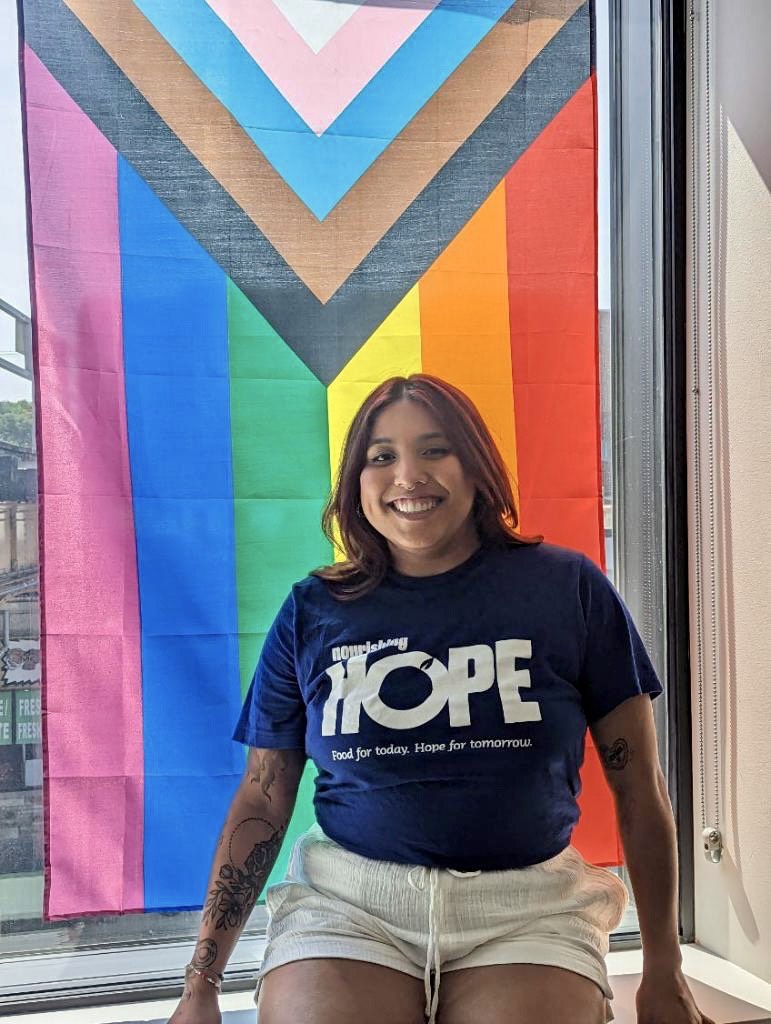 When I think about Pride Month and Pride all year round, I think of it as a celebration of our true selves. I think of it as a time to vocalize our commitment to supporting and protecting the queer community especially in this time.
When I think about Pride Month and Pride all year round, I think of it as a celebration of our true selves. I think of it as a time to vocalize our commitment to supporting and protecting the queer community especially in this time.
And I also think of it as paying respects to all of the sacrifices that are queer ancestors have made. I think especially about Black queer folks and everything that they’ve done to create the culture that we thrive in and that we enjoy today.
Drew Moran, director of corporate and institutional partnerships (he/him)
Pride is one of those things that’s religious for me. It’s a very spiritual thing to me. I always have a big gathering on Pride Sunday, and I have really since I moved to the city. I lived right on Halsted Street for seven years, so when I first moved to the city and built a wonderful network of queer friends, it was a perfect place to get together and celebrate the day. We were coming from all different places throughout the Midwest.
It was really the first time that I ever, even after college, had a group of people who not only were tolerant and accepting of queer life, but also celebrated it. It’s first and foremost a time of community, and oftentimes so much more vibrant because so many of us didn’t have it for so long.
Rich Neal, board member (he/him)
This is a month during which we celebrate who we are as out, gay+ people and (Pride) encourages us to be seen as a part of society — nothing more, nothing less. Having grown up in the 70’s and come of age in the 80’s, being gay was not something overtly accepted — it was actively hated by many in society. Now we know we do not choose to be gay, as science has proven, so there is nothing to be ashamed of, and the month allows us to be more seen as we are still working towards acceptance of just existing as a regular, non-threatening part of society.
Marina Silva, bilingual therapist (she/her)
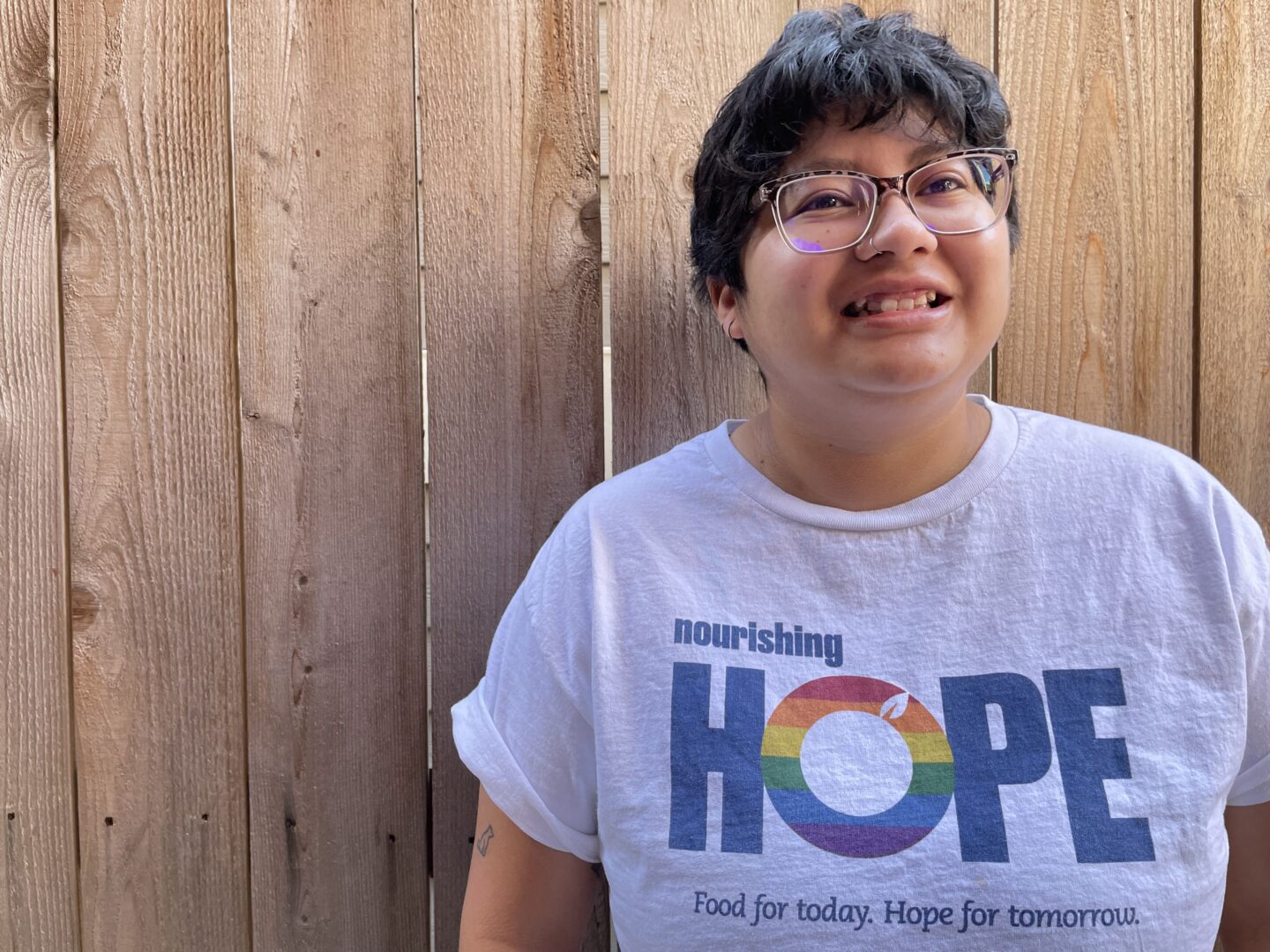 Pride Month for me is a time of year where folks like myself in the queer community and the queer community as a whole has even more time and space to be more queer, more gay, more happy and to honor all of our queer ancestors and all the work that they have done so that we could get to this point where we could live without fear of judgment, right? Live without fear of backlash or pain or hurt.
Pride Month for me is a time of year where folks like myself in the queer community and the queer community as a whole has even more time and space to be more queer, more gay, more happy and to honor all of our queer ancestors and all the work that they have done so that we could get to this point where we could live without fear of judgment, right? Live without fear of backlash or pain or hurt.
I try to remind myself during Pride Month that we are allowed to be happy and joyful in this world, especially when so many political things are going on that are trying to threaten our existence. Pride Month is a time to show up, show out and just be in community with each other.
Andrew Taylor, case manager (he/him)
 Pride Month is a great opportunity to honor the past and reflect. Every year, I learn and grow in the process of understanding queerness and what that means to myself.
Pride Month is a great opportunity to honor the past and reflect. Every year, I learn and grow in the process of understanding queerness and what that means to myself.
A lot of times, especially when talking about history, it’s really easy to talk about the parts that are hard or painful or scary. One of my favorite parts about Pride is talking about the history and the present that is joyful. There’s so much about being gay, about being queer, that is full of joy. That joy is reflected in the stuff that is hard as well.
On how they typically celebrate/observe Pride Month
Andrew: My favorite way to celebrate Pride is really getting into night life. Night life has been important to queer culture since forever. I think it is incredibly joyous that it’s still such a source of community and light and life for people — engaging in clubs, in bars, in music, in dancing. It is so really vital, especially in Chicago. I feel really lucky to be able to stand and dance and party in the same places that have been important to the movement for many decades.
Marina: I tell myself, June first, every Pride Month, “Okay you’re going to be gayer than ever! You’re going to be louder than ever! Let’s just be out there.” I don’t care what other people think about what I’m wearing or what I look like. My hair is green right now and I love it! I just re-dyed it. I’m putting those positive vibes out there, this is Pride Month for me.
I’m going to be visiting local businesses that are queer-owned and trans-owned and giving them my money, right? I’m excited to just be in community with my people.
Rich: Our celebration is changing since years past, due to growing older and having new avenues to explore this month. In years past, since we live right along the Pride Parade route, we would be on the street celebrating and cheering on everyone who was celebrating us. This year, due to change in our life, we are celebrating at our second home in a gay vacation town, Provincetown, Mass.
It is interesting celebrating Pride in a predominantly gay town, where that one aspect is simply just who we are and supported by fellow residents. It can feel a bit less urgent than in Chicago and certainly smaller towns everywhere, but important nonetheless.
Drew: I use it as an opportunity, not only to bring my friends together but to be really intentional about the larger community. I have friends who grew up in the 1960s and who walked in the first Pride Parade in Chicago and who lived much more tragic youths than I did. Bringing people together to understand that, share the history and mostly to celebrate our progress is super important.
Vanessa: I definitely want to nurture my queer community and friendships. I think I’m being more intentional about that this year.
I’m also thinking about going to the Pride Parade. … I don’t usually participate, but I will be going this year. Usually I tend to go to the Dyke March which is kind of like the alternative to the Pride Parade. I think truthfully there isn’t a lot of concentration of BIPOC folks at the Pride Parade so I think that the Dyke March was a response to that.
On the recent attacks on LGBTQ+ rights
Sarah: It’s hard. It’s definitely been really salient this year.
I watch a trans person live every day, you know? He lives with me so I can see the hardships very up close.
Finn and I went to a wedding recently in Missouri, in St. Louis. We met there. We went to school in St. Louis and we had a really disorienting experience going back. We were like, “Oh my gosh, we really like this city. Maybe we could see ourselves living here again one day.” But we’ve both been so acutely aware that we could never live there because we’re not protected. Finn took it really hard. I took it pretty hard. It was this weird thing of: “This place used to be my home but we literally wouldn’t be safe.” They’re actively in the process of blocking people from receiving gender affirming care. We’ve definitely talked about places we can travel to, places we can’t go, and where we can be safe.
I just want to be somewhere where it’s good and we are welcome.
Vanessa: I feel like we need to acknowledge (the recent attacks on LGBTQ+ rights). We should also think about what we can contribute to protecting the community against this harmful legislation. How do we create safe spaces where we can allow queer youth, especially, to be open and expressive about who they are and to explore that they are who they are with curiosity and with safety?
So, especially now, we need to think about: What is our role? What is our part in fighting against that legislation, right? It’s starting in other states but I think it could definitely happen anywhere. We need to be vocal about where we stand, what we value, and stay grounded in that — making sure that we are, again, protecting our queer community.
Drew: Even just the past five years, I would say, the attacks have been increasing. Specifically, the fear is for our trans children, right?
I’ve been saying, for probably three years now, that it gets harder and harder to celebrate Pride when what we hold dear becomes more and more under attack.
It’s even more important that we band together and that we again hold the month holy and remember that it’s our voices and our continued fight and struggle. Just like all who came before us.
I think we are well positioned to do that because the unique special fire of queer people is something that’s hard to quell. But we have to stay loud and stay visible. And we have to be parents sometimes and adults for those kids who maybe don’t have the leaders and the families that they need every day.
Rich: I do feel more of a sense of urgency this year due to the attacks on and attempts to marginalize members of our greater umbrella of sub-groups. I am making more of an effort to be seen as gay and supportive of our entire rainbow of adjacent groups that are still at the beginning of fighting and finding positive exposure.
It is maddening and frustrating that in 2023, basic human rights are under attack from people who actually are not affected in any way by the people they are trying to marginalize.
Marina: I’ll say for myself, I have been — in the last couple of years, maybe since the 2016 elections — I’ve been more cautious, and it sucks. I’ve been more cautious of being in crowded public spaces with other queer folk, which makes me really sad, just because there have been attacks on queer and trans folks and groups. With all of the political encouragement from leaders it has been kind of scary.
All that being said, I am still trying to do my best to enjoy Pride Month. At least during Pride Month, there’s protection in knowing that there is safety in numbers. There is safety in visibility. We are here and we’re not going to go anywhere, right? Even if you try to legislate our identities out of textbooks or not allow the word “gay” to be said in school. We’re here, you know?
Andrew: I think for a lot of younger queer people, myself included, this is the first time in my life I’ve ever seen legal attacks on rights and protections as intense as they have been. I’ve never seen anything like it in the time that I’ve been alive. There’s a call to action in that for queer people and allies. Something that’s really hard across the entire community is solidarity and understanding why protections and rights for trans people are important for people who aren’t (trans).
The persecution of trans people that we’re now seeing is inherently tied to and reflective of persecution of all queer people. Now more than ever, the entire community has an obligation to show up for the trans siblings we all have.
On how Nourishing Hope’s work supports LGBTQ+ rights
Andrew: The liberation of queer people is tied to the alleviation of hunger, the alleviation of poverty, the alleviation of suffering generally. All of these things must occur together for us to really understand what it is to be free, to be equal, to have equity. I think Nourishing Hope is, in every capacity, doing work to support that vision of a future.
Our staff, the people I work with, are deeply committed to helping people achieve the means and the ability to build the life that they want. We do that in a lot of different ways. My team specifically provides people the stepping stones to something new and to being more free.
Marina: In our work with Nourishing Hope, when we first meet a client we are not putting any expectations or assumptions on who they are. We wholly accept who they are. We want them to be their authentic selves. And that’s either when they’re getting food or when they’re receiving drop-in social services, or even when they’re with me in therapy — especially in therapy.
It’s an invitation to come as you are.
Rich: Due to the marginalization of so many individuals, there is a large number of people in the LGBTQ+ group that have not found security in their lives — for many, many reasons. Our work directly impacts those who can reach out and ask for support. This is true to folks who are not only in the LGBTQ+ family, but many others. I appreciate that this month, there is a focus on this group of people.
The work that we do is in support of everyone who needs it — everyone. LGBTQ+ rights are simply human rights for all.
Drew: One of the brilliant strengths of the LGBTQ+ community is its diversity. There are people of every faith, every color, every level of education, every level of ability. That diversity is maybe our biggest strength. I see that reflected in the community we have at Nourishing Hope. There’s a parallel there that’s really beautiful.
Our work is particularly important for trans youth, who are twice as likely as their peers to experience homelessness. We provide a support system, for young people and for adults. I’m proud of that. I’m proud of the community that we’ve built.
Vanessa: I think one thing that is always echoed at Nourishing Hope is treating people with respect and dignity and I think we’re all pretty vocal about accepting everyone, every part of our clients and all of their identities. We make intentional efforts to put up our Pride flags and make sure that we create a space of acceptance.
Sarah: I can see that there’s such a built community here and it’s such a warm, welcome place to everyone. I don’t feel excluded from that in any way. I can tell the culture of being welcoming, of warmness, of showing value with words or with actions is here. And that goes hand-in-hand with Pride and with welcoming queer people into the fold.
I had a call with a neighbor recently who is changing their name and it was very heart-warming for me. We’re serving a fellow friend, you know. We’re serving the queer community here. I see it in action.
On how allies can support
Vanessa: Explore what your role is in this continued fight and continued advocacy. And, you know, protect your friends.
Protect your queer community. Help your friends be able to have that safe, queer, joyful expression.
Sarah: Go watch the Netflix series Heartstopper and or read the graphic novels because it’s phenomenal. Pose which was done on FX is great. I learn a lot through media if I don’t know something about a culture. I read this amazing book called This is How it Always Is, and it was from the perspective of a parent of a trans kid. I gave it to my mom last year for Christmas. It’s a really humanizing and helpful way to understand.
Marina: Be a patron to small, queer-owned businesses. Give space and empower the queer folks and the trans folks in your lives to share what they want, without pushing them to share with you. Make them feel comfortable and not tokenized and be in community with us.
For me, community is super important. Be here and be present for the queer and trans folks in your life. Make sure that they’re okay. Check in with them. There’s a lot of bad stuff happening in the world and I think we can all come together to work against those things.
